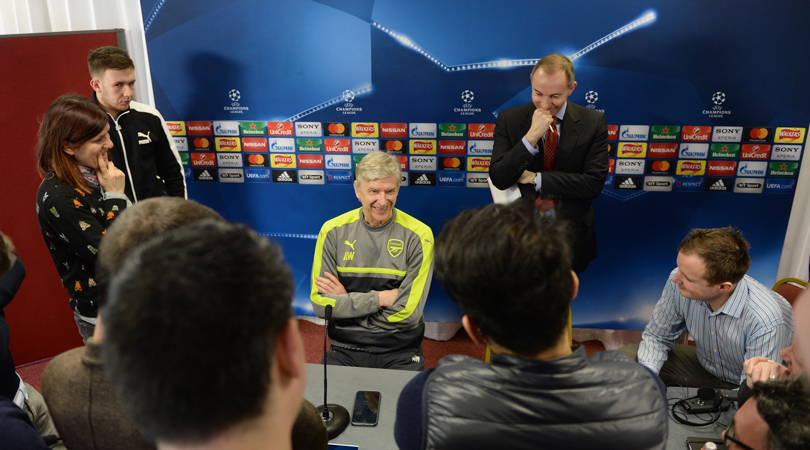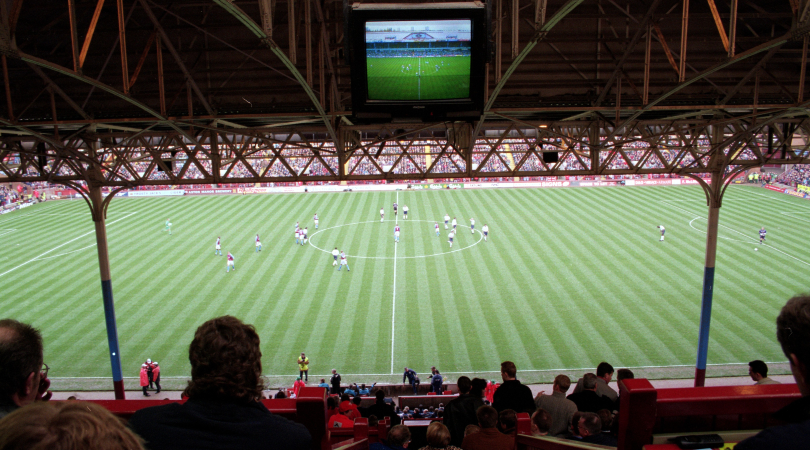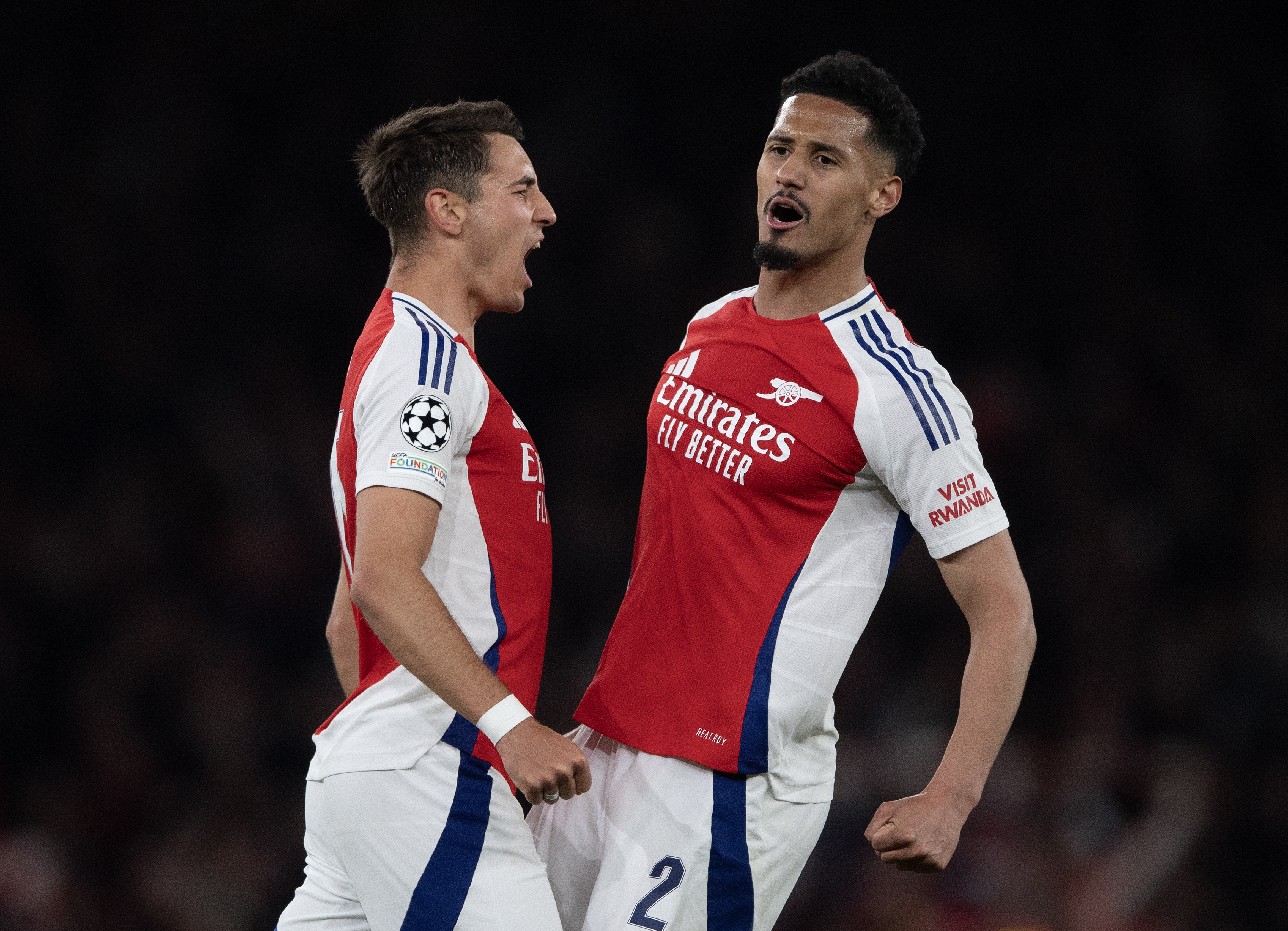How stories get made: why press conferences remain vital to football
Most of what we think about managers is still influenced by the bits that don't make headlines at the humble old presser

The first time I attended a press conference I tried to ask a question by putting my hand up. Alan Pardew was in the old press auditorium at White Hart Lane, having just seen his Crystal Palace side lose to a late Victor Wanyama goal, and there he was, looking at me with my arm in the air like it was a GCSE Geography lesson.
It was humiliating. Mortifying. I still twitch a little bit when I think about it now. Not quite in the same kidney-cringing way that I did in the days and weeks after, but that kind of thing stays with you.
Nobody tells you though. Nobody takes you aside and tells you that, instead, you have to catch the press officer’s eye or just wait for a break in the questions and shout out.
As with the Mixed Zone, there’s no manual – when that first accreditation request is granted, DataCo don’t email a list of things you should and shouldn’t do and neither is there any sort of helpful orientation process once you get inside the stadium.
No, invariably you learn by making an absolute fool of yourself, and by becoming the punchline of someone else’s anecdote.
Another caveat to bear in mind is that those searching questions that you’ve always wanted to ask – the ones about false nines, inverted full-backs and goalkeepers playing out from the back – are not going to be welcomed.
Some head coaches actually seem to like being challenged on tactical points, but ask that kind of question while journalists are trying to fill and file their copy and you’ll feel the eyes rolling in your direction.
Get FourFourTwo Newsletter
The best features, fun and footballing quizzes, straight to your inbox every week.
In the beginning, it may be tempting to see that environment as a chance to show how much you know about the game. Particularly so given how banal and benign a lot of the questions actually are.
Were you happy when you scored? Were you pleased when your forward completed his hat-trick?
But it’s neither the time nor the place. There is a flow and it’s not to be disrupted by bursts of intellectual vanity.
This Is The One, Daniel Taylor’s account of covering Sir Alex Ferguson’s Manchester United, does a fine job of describing that dynamic and illustrating why it is important. Primarily, a press conference is a paper and website-filling exercise and, as such, it needs to retain its rhythm.
Away from those imperatives lie other, more interesting avenues, though.
Maybe press conferences are actually becoming more important now? As football grows and its landscape becomes more like a stage-managed Hollywood set, its humanity can still be found in the minutes after a game. Not always, because head coaches have become extremely good at playing a dispassionate and very straight bat, but personality still regularly leaks into their performances.
It’s an insight into who they are as people. We regularly hear, for instance, about how detail-orientated Eddie Howe is, and that’s reinforced in the considered way he answers questions.
Sean Dyche is another. Rather than the stereotype he’s often portrayed as – complaining about diving, advocating a rigid 4-4-2 – his press conferences often show Dyche to be erudite and passionate on a range of issues. He’ll talk about the travel challenges facing his club’s supporters, or Burnley’s role in supporting local industry.
He’ll show fragments of his character which may not be newsworthy, but which still inform the way he’s written about and perceived. At best, those kernels may inform the occasional line or two in an article, but they’re still reflections of value.
There are more subtle examples. While the headlines will always pivot around penalty decisions, late goals and controversies – or the kind of remarks which create and sustain stories (manager-player relations etc) – there’s nearly always something to take away.
How does a manager react to defeat? How does he respond to adversity and victory? Or, in very specific instances, how does he handle the press at its most confrontational?
Towards the end of Arsene Wenger’s time at Arsenal, some of the questions he received about his future were very mean spirited and, frankly, quite disrespectful. Irrespective of any views of him as a coach, the way Wenger kept his dignity in those moments was telling of who he is as a man.
It was a unique situation. More commonly, journalists learn whether a coach habitually directs praise towards himself and lumbers his players with blame. Or whether he is analytical in conversation and prone to taking ownership of the mistakes he might have made.
Or, alternatively, if he just grabs at whatever excuses are on offer.
It’s interesting to consider Mark Hughes’s reputation, for instance. His ability to attribute goals conceded and dropped points to referees became a running joke and, over time, that became his coaching identity – which, quite naturally, gave rise to the accusation that his team’s declining standards were the result of an excuse culture.
Conversely, when Ralph Hasenhuttl succeeded him at Southampton, one of the most memorable aspects of his first post-game press conference – at Cardiff City stadium, after a 1-0 loss – was his refusal to offer consoling platitudes to Jannick Vestergaard, after his blunder had cost his team the game.
It’s a simplification, of course, but it was easy to imagine Hughes in that same position, behaving in a completely different way. On the one hand, a disciplinarian who didn’t tolerate mistakes. On the other, a softer touch who had inadvertently invited them, encouraging a lack of responsibility.
It’s a process which involves interpretations and assumptions, many of those involving some kind of bias, but it still describes where narrative comes from and, more broadly, demonstrates what can be mined from a seemingly fallow environment. Yes, press conferences can sometimes be processional, pointless parodies of themselves, but their subliminal details remain essential.
While you're here, why not take advantage of our brilliant new subscribers' offer? Get 5 copies of the world's greatest football magazine for just £5 – the game's greatest stories and finest journalism direct to your door for less than the cost of a London pint. Cheers!
NOW READ...
INTERVIEW How do you deal with being the most sought-after teenager in the world? Erling Haaland scores goals
LIVERPOOL The best right-back in the world? How Trent Alexander-Arnold is reinventing the full-back
QUIZ Can you name the top 50 clubs according to UEFA coefficient?
Seb Stafford-Bloor is a football writer at Tifo Football and member of the Football Writers' Association. He was formerly a regularly columnist for the FourFourTwo website, covering all aspects of the game, including tactical analysis, reaction pieces, longer-term trends and critiquing the increasingly shady business of football's financial side and authorities' decision-making.

